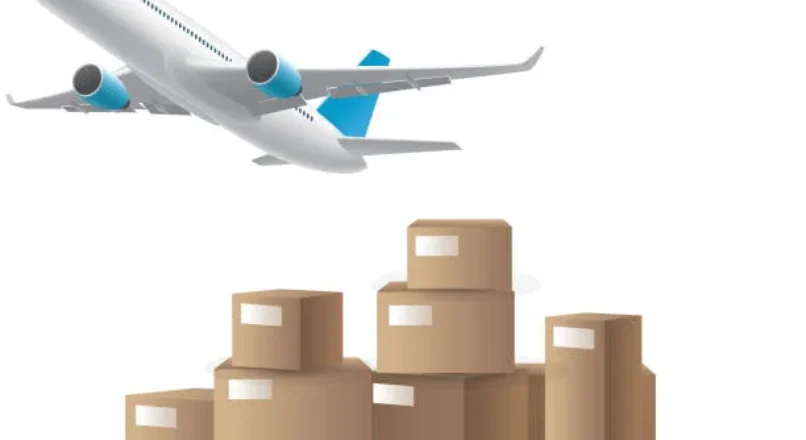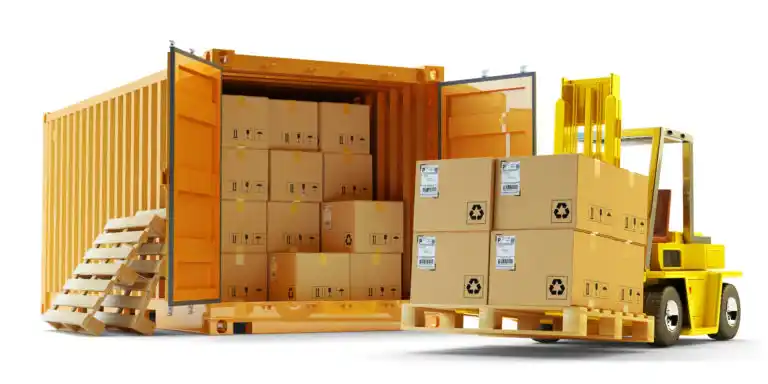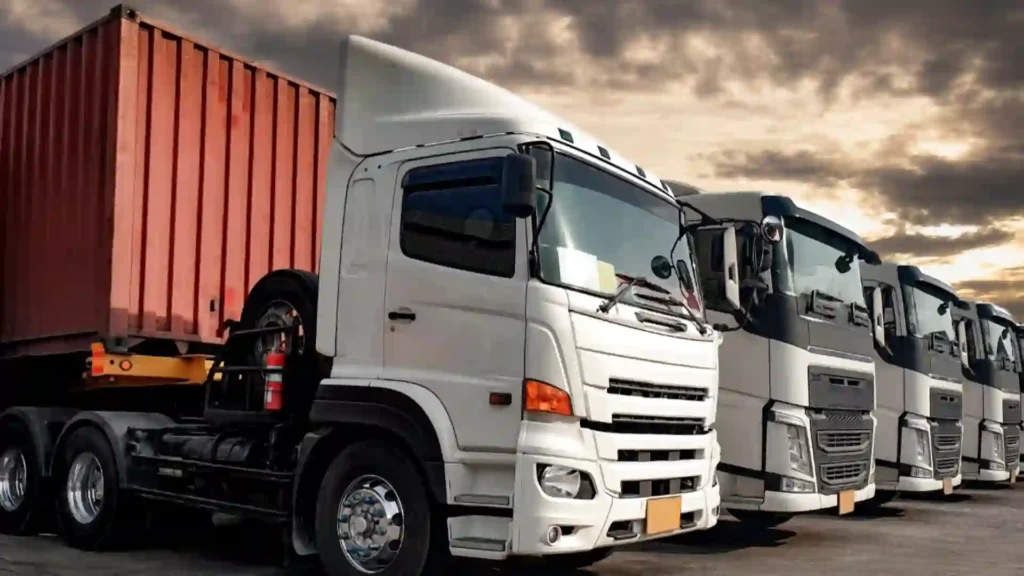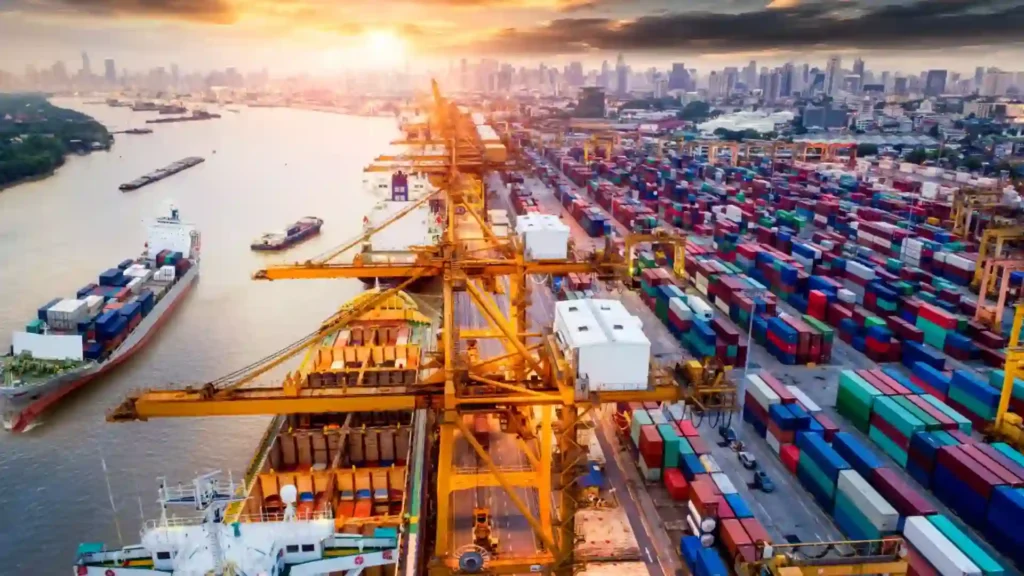
What Types of Cargo Can Be Shipped by These Companies?
When considering the types of cargo that can be shipped by logistics and cargo companies, it’s important to recognize the diversity of goods that can be transported, the specialized handling requirements, and their comprehensive services enable businesses to efficiently manage their supply chains, regardless of the type of cargo being shipped. Below is an overview of the main categories of cargo typically handled by these companies:

1. General Cargo
- Description: General cargo includes a wide range of goods that do not require special handling or conditions during transport. These items are usually non-perishable and can include everything from clothing and electronics to machinery and tools.
- Shipping Methods: General cargo is typically shipped in standard containers via sea, air, or land freight. These goods are often consolidated with other shipments to maximize space and efficiency.
2. Perishable Goods
- Description: Perishable goods refer to items that have a limited shelf life and require specific temperature and humidity controls during shipping. This category includes fresh produce, meat, dairy products, pharmaceuticals, and flowers.
- Shipping Methods: Perishable goods are usually shipped in refrigerated containers, known as reefers, or via air freight to ensure timely delivery. Temperature monitoring and fast transit times are crucial for maintaining the integrity of these products.
3. Hazardous Materials (Hazmat)
- Description: Hazardous materials include chemicals, gases, flammable liquids, and other substances that pose a risk to health, safety, or the environment. Transporting these goods requires strict compliance with international regulations.
- Shipping Methods: Hazmat cargo companies requires specialized packaging, labeling, and documentation. It is often shipped via dedicated carriers that are certified to handle dangerous goods, with stringent protocols in place for safety.
4. Oversized and Heavy Cargo
- Description: Oversized and heavy cargo includes items that exceed standard size or weight limitations, such as industrial equipment, vehicles, and large machinery. These goods often require special permits and transport equipment.
- Shipping Methods: Shipping oversized and heavy cargo typically involves using flatbed trucks, specialized ships, or air freighters designed to accommodate large items. Planning the logistics for such shipments involves coordinating routes and ensuring infrastructure can handle the load.
5. Valuable and Fragile Goods
- Description: This category includes high-value items such as artwork, antiques, jewelry, and sensitive electronic equipment. These goods require extra care and security during shipping to prevent damage or theft.
- Shipping Methods: Valuable and fragile goods are often shipped using custom packaging with cushioning materials and may require insurance coverage. These items are usually transported via air freight or in secure containers with tracking and monitoring systems.
6. Bulk Commodities
- Description: Bulk commodities refer to goods that are shipped in large quantities without packaging, such as grains, coal, oil, and minerals. These goods are typically homogeneous and are loaded directly into the cargo holds of ships or onto trucks and trains.
- Shipping Methods: Bulk commodities are transported in specialized vessels like bulk carriers for sea freight or in hopper cars and tanker trucks for land transport. Handling and storage facilities are also specialized to manage the volume and type of commodity.
7. Live Animals
- Description: Live animals, such as livestock, pets, or exotic species, require highly specialized handling to ensure their safety and well-being during transport. This type of cargo is subject to stringent animal welfare regulations.
- Shipping Methods: Live animals are typically transported via air freight in temperature-controlled, ventilated crates with provisions for food and water. Specialized carriers that understand the requirements of live animal transport are usually contracted for these shipments.
8. Project Cargo
- Description: Project cargo encompasses large-scale, complex shipments often related to construction, oil and gas, and renewable energy projects. This can include everything from prefabricated structures to entire manufacturing plants.
- Shipping Methods: Project cargo requires meticulous planning, often involving multimodal transportation (combining sea, land, and air freight). Logistics companies work closely with project managers to coordinate timing, route planning, and the use of specialized equipment.
How Can You Assess the Quality of Cargo and Packaging Providers?
Choosing the right cargo and packaging provider is crucial for ensuring your goods are transported safely and efficiently. A provider that is ISO certified or adheres to other relevant industry standards is likely to have established processes in place that ensure the integrity of both the cargo and the packaging. Here’s a guide on how to assess the quality of cargo and packaging providers:

1. Reputation and Experience
- Research Provider’s History: Look into the provider’s history and track record in the industry. Long-standing companies with a solid reputation are generally more reliable.
- Customer Reviews and Testimonials: Check online reviews and testimonials from past clients. A high volume of positive feedback is a strong indicator of quality service.
- Industry Certifications: Ensure the provider holds relevant industry certifications, such as ISO standards, which demonstrate a commitment to quality and safety.
2. Range of Services Offered
- Comprehensive Solutions: Assess whether the provider offers a comprehensive range of services, including packaging, warehousing, and transportation. A full-service provider can simplify logistics and reduce costs.
- Customization Options: Quality providers often offer customizable solutions tailored to specific needs, such as fragile items or hazardous materials.
3. Quality of Packaging Materials
- Material Durability: Evaluate the quality and durability of the packaging materials used. High-quality materials like sturdy corrugated boxes, reinforced crates, and moisture-resistant wraps are essential for protecting your goods.
- Sustainability: Consider the environmental impact of the packaging materials. Providers who use eco-friendly and recyclable materials demonstrate responsibility and innovation.
4. Technology and Tracking Capabilities
- Real-Time Tracking: Modern cargo providers should offer real-time tracking capabilities. This allows you to monitor the status of your shipment at every stage.
- Technology Integration: Check if the provider uses advanced technology, such as automated sorting systems or RFID tracking, to enhance efficiency and reduce the risk of errors.
5. Customer Service and Support
- Responsiveness: A quality provider should have a responsive customer service team available to address concerns and provide updates. Test their responsiveness by asking questions before committing to their services.
- Problem Resolution: Assess their problem-resolution capabilities. How do they handle delays, damages, or lost items? A good provider will have clear policies and procedures in place to address such issues.
6. Cost-Effectiveness
- Competitive Pricing: While price shouldn’t be the only factor, it’s important to compare the costs of different providers. Look for a provider that offers transparent pricing with no hidden fees.
- Value for Money: Evaluate whether the quality of cargo services provided justifies the cost. Sometimes, paying a little extra ensures better protection and service.
7. Compliance and Safety Standards
- Regulatory Compliance: Ensure the provider complies with all relevant regulations and industry standards. This includes adherence to packaging safety protocols and international shipping regulations.
- Insurance Coverage: Check if the provider offers adequate insurance coverage for your goods. This is crucial for protecting your investment in case of damage or loss.
How Can I Compare Cargo and Packaging Services in Dubai?
When it comes to shipping goods and managing logistics, choosing the right cargo and packaging services is crucial for ensuring the safe and efficient delivery of your products. It is advisable to request detailed quotes from multiple providers to ensure a comprehensive understanding of the costs involved. Here’s a guide to help you make an informed decision:

1. Assess Your Specific Needs
Before comparing services, identify your requirements:
- Type of Cargo: Different types of cargo (e.g., perishable, fragile, heavy) may need specialized handling.
- Volume and Frequency: Consider how much and how often you need to ship.
- Destination: Determine if you need domestic, regional, or international shipping.
2. Evaluate Packaging Solutions
Good packaging is essential for protecting your goods. Compare services based on:
- Packaging Materials: Look for high-quality, durable materials suitable for your cargo.
- Customization: Check if they offer custom packaging solutions to meet specific requirements.
- Sustainability: If eco-friendliness is a priority, inquire about their use of sustainable materials.
3. Compare Service Providers
When comparing cargo and packaging suppliers in Dubai, consider the following factors:
- Reputation and Experience: Research the provider’s reputation and years in the industry. Established companies often have proven track records.
- Service Offerings: Ensure the provider offers the services you need, such as warehousing, customs clearance, and tracking.
- Technology and Tracking: Check if they provide modern tracking systems and technology to monitor your cargo’s progress in real-time.
- Cost: Obtain quotes from multiple providers and compare them. Be wary of unusually low prices, as they may indicate compromised quality.
- Customer Service: Evaluate their customer support, responsiveness, and problem-solving capabilities. Good communication is key to a smooth logistics process.
- Insurance: Ensure the provider offers adequate insurance options to protect your goods during transit.
4. Read Reviews and Get Recommendations
Look for customer reviews and testimonials online to gauge the experiences of others. Additionally, ask for recommendations from business contacts or colleagues who have used cargo and packaging services in Dubai.
5. Visit Facilities
If possible, visit the facilities of potential service providers. This will give you a firsthand look at their operations and help you assess their professionalism and reliability.
6. Check Compliance and Certifications
Ensure the provider complies with local and international regulations and holds necessary certifications. This is particularly important for customs clearance and handling of specialized cargo.
7. Compare Delivery Times
Different providers may offer varying delivery times. Make sure their delivery schedules align with your needs and expectations.
8. Consider Value-Added Services
Some providers offer additional services such as inventory management, real-time updates, and dedicated account management. Evaluate these value-added services and how they might benefit your business.

Good Wave Cargo is a premier logistics provider based in Dubai, specializing in comprehensive cargo solutions tailored to meet the diverse needs of businesses and individuals alike. With a commitment to excellence, Good Wave Cargo offers a wide range of services including air freight, sea freight, and land transportation, ensuring that your goods are transported safely and efficiently across local and international borders.
Cargo Companies in Dubai:-
Equipped with state-of-the-art technology and a team of experienced professionals, they facilitate seamless supply chain management, customs clearance, and warehousing solutions. With a commitment to customer satisfaction cargo companies in Dubai prioritize transparency, competitive pricing, and real-time tracking, enabling clients to monitor their shipments throughout the logistics process.

Leave a reply